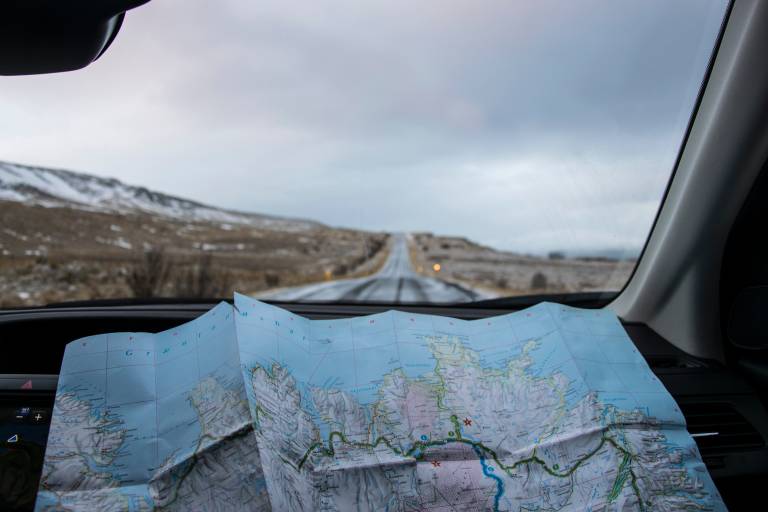Scientists discover 'where we are' changes the way we see an image
11 September 2018
Understanding how the brain's visual and navigational system function together is one step closer, thanks to a new discovery made by UCL researchers.

Previously it was thought that the brain had two distinct systems that worked independently, one for vision and one for navigation. However, new research conducted by Dr Aman Saleem, Dr Efthymia Diamanti, Dr Julien Fournier, Professor Kenneth Harris and Professor Matteo Carandini, from UCL Brain Sciences, finds that two are in fact tightly interlinked.
"Our surprising discovery is that 'where' you see an image changes visual activity. This means the same image is seen differently depending on where we are physically in the world," said Dr Aman Saleem.
To test this theory, the researchers created a virtual reality room for mice where they could investigate the visual and navigational systems in parallel. They designed two sections of the room to be visually identical.
The expectation was that the purely visual neuron would respond in the same way to these landmarks, regardless of position in the environment.
Surprisingly, they found most neurons were strongly modulated by position; meaning that an individual will see the same exact image differently, based on their physical location.
Dr Saleem said one previous understanding of how the brain works is that different areas of the brain are specialised to do specific things. "For instance, they take information, process it in specific ways and pass it to the next area - very much like an assembly line.
"However, our research finds that to process navigational information, the areas are instead working together as a team.
"This discovery therefore changes our understanding of how the brain uses vision to solve the complex problem of knowing where we are and to help navigation."
According to the researchers, these findings are fundamental in understanding healthy brain functions and can help develop better strategies to tackle neurological diseases in the future.
They also believe a better understanding of how the brain solves this navigational challenge could help to create artificial systems that mimic it, for example, to improve artificial intelligence in 'self-driving' cars.
The study, published in Nature, was primarily funded by Wellcome and the Simons Foundation.
Links
- Dr Aman Saleem
- Professor Matteo Carandini
- UCL Psychology and Language Sciences
- Simons Collaboration on the Global Brain
- Nature
- Published article in Nature
- Wellcome
 Close
Close

